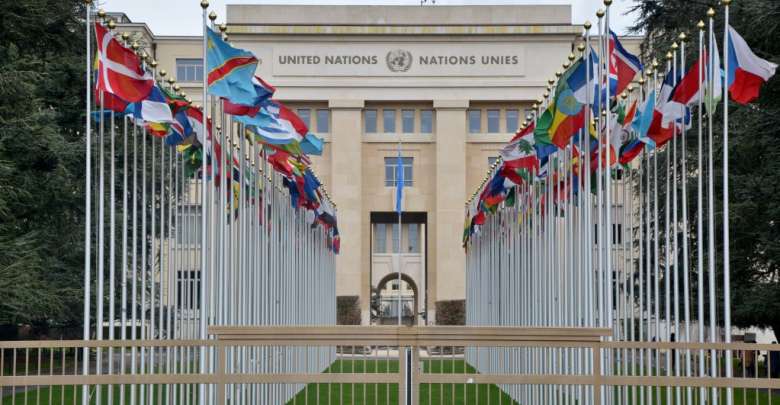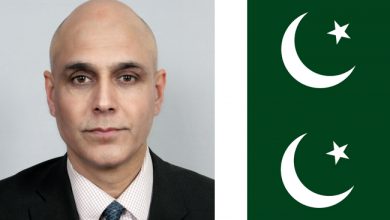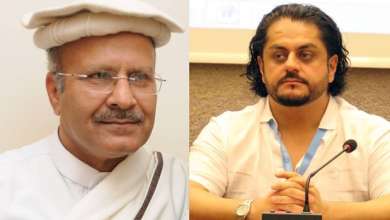Role and Responsibility of Global Kashmiri Diaspora

Written by: Dr. Ghulam Nabi Fai
June 13, 2023
The crisis in Kashmir – and the United Nations ineffectual response – represents an example of the failure of the United Nations to respond effectively against massive and persistent violations of human rights. Kashmir also represents a failure of the United Nations to use its mandate to seek an equitable peace and justice. The United Nations always tries to examine how it can more effectively prevent human rights violations, it is instructive to examine the experience of Kashmir and seek lessons for increasing the UN’s effectiveness.
In 1990, following the collapse of the Soviet Union and the massive expansion of freedoms around the world, the people of Kashmir began to seek their right to self-determination, as promised by the United Nations resolutions. In an effort to suppress this growing sentiment among the Kashmiri people, the Government of India began committing massive abuses of human rights.
These abuses, which continue today, include: the systematic use of rape; the arbitrary arrest, torture, summary execution of Kashmiri civilians; firing into unarmed crowds of peaceful demonstrators; and the burning of entire villages and communities by Indian troops. Since 1990, over 100,000 people have been killed by occupation forces in Kashmir, and thousands more have been maimed or wounded. Many of the victims are women and young children. Over 10,000 women have been raped by Indian occupations forces. And according to a report published by ‘The International Peoples Tribunal on Human Rights and Justice in Indian Administered Kashmir (IPTK), 8000 to 10,000 people have disappeared in Kashmir. Their wives are known as ‘half-widows’ because they do not know whether their husbands are dead or alive.
Recently, after the abrogation of Article 370 & 35A on August 5, 2019, India enacted Domicile Law to change the demography of Kashmir. More than 4.3 domicile certificates have been issued to non-Kashmiris to allow them to reside inside the state. Today, India is the worst example of settler colonization. It is reported that Government of India has earmarked 203005 acres of land in Jammu & Kashmir for land grab. Besides, the Indian army is engaged in confiscating local homes and evacuating the locals from their business establishments, in particular from the hotels which have been built in the most scenic areas in the Valley, like Gulmarg – famous for its skiing scenes in Asia.
All of these actions are perpetrated by the Indian Government with one singular purpose to prevent the implementation of the UN resolutions. And yet, the UN has been unable to respond effectively to this political and humanitarian crisis.
The solution to the crisis in Kashmir lies in dialogue between all parties concerned – Governments of India, Pakistan and the genuine leadership of the people of Jammu & Kashmir. But India has chosen destruction over dialogue, jailing political prisoners, like Yasin Malik, Shabir Ahmed Shah, Masarat Aalam, Aasia Andrabi and human rights activists, like Khurram Parvez , journalists like Irfan Mehraj, Asif Sultan, Sajad Gul, Fahad Shah, etc and implementing a brutal campaign of terror against the civilian populations in Kashmir.
How long will the world watch in silence as India carries out the genocide of the people of Kashmir? This is a question the Kashmiris are asking today.
At this guardedly propitious time, the role of global Kashmiri diaspora leadership is pivotal, and its responsibilities are correspondingly great, particularly when leaders like Syed Ali Geelani & Mohammad Ashraf Sehrai are no more with us and rest of the Hurriyet leadership is incarcerated. It is a historical fact that Diaspora in other international conflicts have proved essential to political change and direction, like South African diaspora became instrumental in toppling the scourge of apartheid. An amorphous collection of people, no matter how well intended have never achieved anything politically significant. The leadership of global Kashmiri diaspora cannot blithely assume that progress towards achieving self-determination will come spontaneously from the people without their advice, guidance, example and encouragement. The diaspora leadership cannot be summer soldiers or sunshine patriots. History will hold them accountable for success or God forbid of any failure.
The responsibilities of diaspora are manifold. First is to teach and practice the adage that if we do not hang together, we will all hang separately. Diaspora leadership must subordinate individual quests for political power, prominence, and other gain to the common good for all Kashmiris.
In addition, what matters is not who obtain public credit, but that success is achieved. Petty jealously have no place among Kashmir’s diaspora leadership circle. All should accept unreluctantly personal sacrifices necessitated by the urgency of the Kashmir issue. As Dr. Gregory Stanton, Chairman, Genocide Watch has warned, ‘Kashmir is at the brink of genocide.’ Emulation by the Kashmiri people will follow and generate the dynamics indispensable for the inevitably arduous struggle for self-determination. Time has come that all Kashmiri diaspora Organizations, Councils, Associations, Forums, Coalitions, Missions, Movements, Foundations, etc. must pursue one single agenda item: unfettered right of self-determination of the people of the State of Jammu & Kashmir. If need arises, we can gladly agree to disagree.
The North Star for diaspora leadership must be feasible, not the utopian. The world is unsentimental. On the international stage, might is customarily more powerful than right. National interests ordinarily trump intellectual consistency, international law, democratic rights and professed universal standards of justice. But there are exceptions, God only knows why? such as East Timor, Namibia, Southern Sudan. Moral suasion occasionally exhibits teeth. Diaspora must be skillful in orchestrating the complex array of cynical and high-minded motives of nations to achieve a symphony playing the lofty theme of self-determination for Kashmiris. Such orchestration will be more an art than a science and will require sleepless labors and lucubration’s to succeed. It is not a task for the indolent or dull.
Diaspora must neither stumble nor waver in the task of attaining self-determination for millions groaning under repression and grim privation.
In approaching a Kashmir resolution, the sole non- negotiable issue should be respecting the consensus of the people of all five regions of the state of Jammu & Kashmir with whom sovereignty resides.
Diaspora leadership not only has to maintain its narrative, but narrative should be equally coherent. We do not need to invent it. It is already there with international sanctity. Here is a prime example of the international recognition of Kashmiri narrative.
When India felt that the people of Kashmir will never vote to accede to India, its delegate, V. P Krishna Menon delivered speech of record length at the Security Council where he said ‘In any case, the changed conditions since then had made the agreement obsolete, and the merger of Kashmir with India could not be revoked.’ The response to this fabricated narrative came from a person no less important than Professor Joseph Korbel, former Chairman, UN Commission for India, and Pakistan (UNCIP), who wrote in ‘The New Leader’ on March 4, 1957, entitled, “Nehru, The UN and Kashmir. “This new Indian stand raises issues which far transcend the problem of Kashmir. For if a nation which has accepted a United Nations commitment can blithely assert that ‘circumstances have changed’ and the commitment is no longer binding, then the effectiveness of the United Nations has been dealt a staggering blow.”
Professor Korbel added, “More is at stake in Kashmir than the fate of a remote Asian province. On the UN’s handling of this question may depend much of its future moral and political authority.”
Joseph Korbel also wrote in ‘Danger in Kashmir’ on page 351, “The people of Kashmir have made it unmistakably known that they insist on being heard. Whatever may be their wishes about their future, they must be ascertained directly or through their legitimate, popular representatives.” “If it (solution of Kashmir) is not achieved, India and Pakistan, indeed the whole free world may reap the harvest of shortsightedness and indecision of unpredictable dimensions.” (By the way, Professor Korbel was the father of Dr. Madeline Albright, and teacher of Dr. Condoleezza Rice at Colorado University, both former United States Secretaries of State).
Let us take a leaf from the vision of Professor Korbel and move forward unitedly to try to achieve our ultimate objective: the unfettered right to self-determination for the people of the State of Jammu & Kashmir.
Dr. Fai is the Secretary General, World Kashmir Awareness Forum
& Chairman, World Forum for Peace and Justice.
He can be reached at: WhatsApp: 1-202-607-6435. Or gnfai2003@yahoo.com www.kashmirawareness.org





